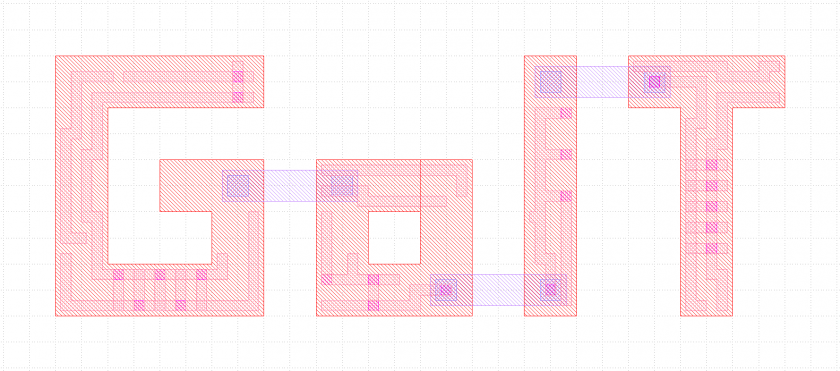
15th of November, 2022.
As of September 1st, 2022, the Institute of Electronics and Computer Science (hereinafter – EDI) has started the implementation of Horizon Europe project “Go IT!” (hereinafter – GOIT).
On August 1991, Linus Torvalds announced the new operating system with the famous words: “I’m doing a (free) operating system (just a hobby, won’t be big and professional like gnu) for 386(486) AT clones. […] Any suggestions are welcome, but I won’t promise I’ll implement them :-)”. In the late 90s, open-source was no more just a “nerd” activity, but it was perceived as a threat by big companies. A few years later, finally, the opposite became true. In the 2010s, in fact, big companies embraced the open-source model. A key learning from the history of the development of open-source software is that there is a very productive and essential “humus” of developers, hackers and enthusiasts, who see in the open-source movement a means to realize their motivations and ideals. Lessons learned could reapply to open-source hardware, which currently is in its infancy, and its evolution is influenced by the interests of the different players. In the last few years, major companies like Google have exerted a strong influence, for example, by gathering control on a silicon foundry (Skywater) and by opening for the first time part of the CMOS Process Design Kit (hereinafter PDK). Still, one should be careful in their assessment, as there are underlying differences between hardware and software.
Semiconductors involve some of the most complex technologies invented by humankind. Strikingly, semiconductors link the atomic-scale world with the current global geopolitical challenges, which have been made particularly obvious following the outbreak of the Covid-19 pandemic emphasizing long-standing vulnerabilities in the semiconductor supply chains. The existence of the European Chips Act only emphasizes this regularity. The complexity and vulnerability of the global supply chains are further emphasized by the global subsidy race. In this context, the core mechanism of open-source principles increases design productivity, resilience, and sustainability.
Europe’s IT hardware development is constantly challenged by outrageously expensive development tools, legal constraints like NDAs or patents, lock-in threats, dependency on external vendors or supply chains, and foreign political events. GOIT project strives to reach all relevant key players and stakeholders, identify all possible obstacles to open-source hardware development, formulate solutions, and feedback inputs to those with the power of influence (policymakers, managers, etc.); therefore, supporting them to coordinate the evolution of open-source in Europe. Further, GOIT will directly coordinate and support the community of programmers and developers, by continuing to organize get-together events (like the Free Silicon Conference), by overcoming critical obstacles (like the availability and compatibility of PDKs and design tools), and by creating the prerequisites to grow in a sustainable manner (re-usability, licenses, etc.). In all these activities, dissemination and advertisement on different levels will play a crucial role.
EDI Senior Researcher Dr. Rihards Novickis emphasizes: “We live in challenging yet opportunistic times, where semiconductors are among the most important industries worldwide. We are in a position to facilitate the open-source chip community by solving the communities’ key challenges – unavailability of design tools and open-source PDKs, absence of a hardware-centric open-source license, and introduction of key quality and re-usability mechanisms. Clearly, it will take time for the open-source chip community to grow. We invest into our future, and it may take decades for the industry to internalize open (libre) concepts.”
The project has identified the following objectives.
– Study issues concerning open-source hardware projects and communication with the decision-makers.
– Direct technical coordination of communities via get-together events, like Free Silicon Conference.
– Actively reach out to relevant universities by offering talks, workshops, and schooling events.
– Facilitate maturity, interoperability, and availability of tools and components by packaging open chip design software.
– Work towards solving the obstacle of providing an Open Process Design Kit (PDK).
– Promote the concept of hardware security by openness, and pilot an open-hardware security approach.
– Disseminate and promote available software tools and best hardware projects and publish license, which protects silicon chips and guarantees re-usability of published work.
– Provide technical inputs, consultations, and directly participate in standardization processes to promote principle of security-by-design.
EDI as the project’s coordinator, is responsible for achieving all project objectives. Nonetheless, the EDI team is more directly involved in establishing a community hub (repository) for open-source chip designs. This hub incorporates a range of abstractions (RTL and physical layout), means of verification, and code reusability. For more information on the GOIT project, please contact Dr. Rihards Novickis (+371 67558288, rihards.novickis@edi.lv).